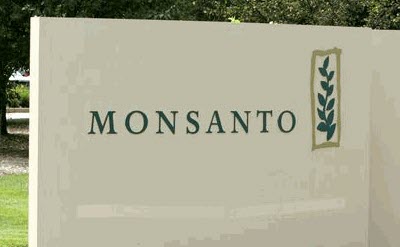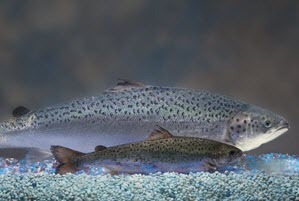Sorry, recently said the FDA to the Corn Refiners Association but “high fructose corn syrup” is just not “corn sugar.” The industry group persists, however, citing of all things the main argument for GMO labeling.
|
|
|||
|
Monsanto’s genetically modified soybeans to be used for cooking oil containing lower levels of saturated fats and higher levels monounsaturated fats were approved last year by U.S. regulators. Yet, while Monsanto prepares for product launch, important safety questions remain unanswered. The FDA took long-overdue steps towards curbing the overuse of antibiotics in farm animals aimed to preserve effectiveness of antibiotics. Unfortunately, the measures remain voluntary and industry compliance remains to be seen. Nearly 35 years ago, the Food and Drug Administration initiated proceedings to withdraw the approval of the subtherapeutic use of certain antibiotics in agricultural animals but it took a Court Order to force the agency to follow through. U.S. Food and Drug Administration issued an order to restrict unapproved use of cephalosporin class of antibiotics in farm animals. Many, however, are critical of the agency’s decision to regulate a practice that is already in decline. Internal investigators found significant weaknesses in FDA’s monitoring of State agencies’ food inspections. The finding raises further questions about FDA’s effectiveness in ensuring the safety of the nation’s food supply. If approved by the FDA, a new bill introduced in California, known as The Consumers Right To Know Act, would require labeling on all genetically engineered salmon sold in California. PAMTA - the legislation that addresses overuse of antibiotics in the agricultural system, which leads to antibiotic resistance in the human population, is once again introduced by Congresswoman Slaughter. New FDA data shows that almost 80% of all antibiotics sold in 2009 were reserved for animal farming. Part two of our series on antibiotic overuse in healthy farm animals examines the response from the FDA and the proposed legislation. The Office of Inspector General gave the nation’s residue inspection program, which monitors to ensure that the nation’s meat supply is free from chemical contamination, a failing score. Eat meat at your own risk. The Food and Drug Administration has preliminarily determined that a genetically modified salmon developed by AquaBounty Technologies is safe for human consumption but many questions about the safety of GE salmon persist. The United States government consistently promotes its regulatory framework for genetically engineered organisms as comprehensive and strict. Is this a public relations maneuver, wishful thinking or the story of the emperor without clothes? The FDA’s regulatory approach thus focuses on the end product, rather than the process used to create genetically modified foods. In short, the FDA regards GM products as “generally regarded as safe,” (”GRAS”) and does not subject GM food products to food additive review. The Food and Drug Administration is the lead regulatory agency of food articles. It is in charge of ensuring the safety and effectiveness of food (other than meat), food additives, medical devices, drugs, veterinary drugs, cosmetics and genetically engineered food. Recently the Obama administration appointed Michael Taylor to serve as the senior advisor to the commissioner of the FDA for food safety. It is also rumored that Pennsylvania’s Agriculture Secretary, Dennis Wolff, would be selected for the position of the Under-Secretary of Agriculture for Food Safety. Consumer group advocates are ringing the alarm bells as both of these men are seen as being deeply rooted in the industry and there are serious concerns as to whether they will represent consumer’s interests in their positions (or, at a minimum, be objective and cautious). Presently, it is questionable whether the genetically engineered foods are adequately controlled and/or regulated under U.S. law. There is no single federal statute or federal agency that governs the subject matter. Three federal agencies are primarily responsible for the regulation of genetically engineered foods - the Food and Drug Administration (FDA), the Environmental Protection Agency (EPA), and the U.S. Department of Agriculture (USDA). |
|||
|
 |
|||











